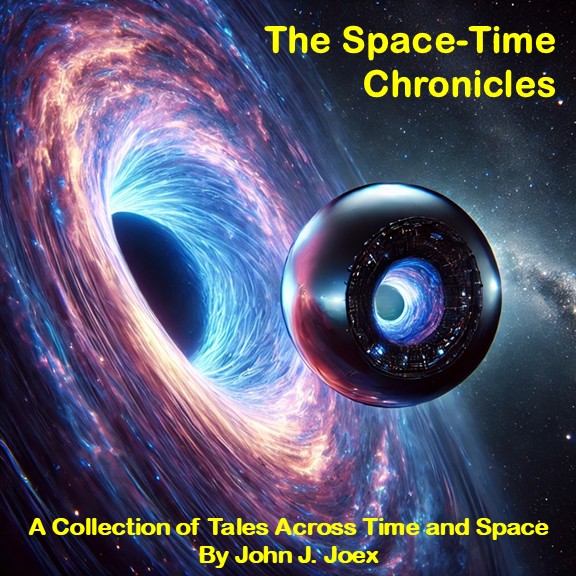[Updated]
I have been working on this exercise for several months now, looking at the shows that should be counted among the greatest of sci fi and fantasy TV. There are hundreds (thousands?) of genre entries that have hit the small screen since television networks began programming regularly in the late 1940s, and among those, there are some really really great shows (and some really really bad ones). So, I am working my way through the ones that should be considered among the best, presenting arguments for and against each one. Below is the list of the first twenty-five I have covered so far (expanded from the list of twenty I published a couple of months back), and I plan to continue adding posts for more in the coming months (about one every week or so). The list is in alphabetical order, as I am not ranking these at this time. However, I will be putting up a poll in the near future so people can vote for the ones they believe are the best. Note that, to be included on the list, I generally prefer the show to have ended its run (I’ve made one exception so far for Futurama and may be doing the same for Black Mirror). That’s because some shows start strong and then derail badly (like Heroes), while others get off to a weak start and improve over time (like Fringe and Person of Interest). So, it’s best to consider the whole run of a show before deciding if it’s one of the all-time greats. Also, the shows listed are not necessarily the top twenty-five; they are just the ones I have covered so far.
Feel free to comment below on the list so far and suggest other shows that should be included. And be sure to stay tuned to this link at CancelledSciFi.com for more entries in this series.
What are the best sci fi and fantasy shows of the Fall 2024 season? Cast your vote here.
Click on the link to read the full post about the show.
Babylon 5 (1993): J. Michael Straczynski’s signature series introduced the story arc to sci fi television in a big way, and it also broke new ground with its heavy reliance on CGI for special effects. While those sfx may not stand up compared to modern technology, this show made its mark and had plenty of influence on the genre, delivering memorable characters and an epic story that was allowed to reach its conclusion.
Battlestar: Galactica (2003): This reboot of the 1978 camp classic beat all the odds by taking a darker turn on its source material and delivering a show with many accomplishments. It offered plenty of drama and moral ambiguities while also getting in some good sci fi tales. It ran out of steam in its later seasons, and the finale is rather controversial, but the show still earned its place on this list.
Blake’s 7 (1978): This British entry did not get a lot of exposure in the United States beyond a brief run on PBS in the 1980s, but it went on to have a notable impact on the genre. It delivered a darker sci fi TV show with conflicted characters that faced many moral quandaries. And while it suffered from the expected budgetary constraints of a BBC production, its excellent cast (which went through multiple changes) often made up the slack and helped carry this show through its four-year run. Some might consider this one high camp, but there is definitely a good genre entry to be found here if you forgive its poor production values.
Buffy the Vampire Slayer (1997): This supernatural drama put Joss Whedon on the map and delivered a rather grown-up young adult show that pushed the boundaries of television at times. It had a stellar central cast and took many chances over its seven-year run, ultimately giving us one of the greatest fantasy shows on television.
Doctor Who (1963): This entry refers to the Classic series that aired on BBC from 1963 to 1987 (I will cover the revival later). It delivered plenty of cheesy sci fi, with some episodes very difficult for modern audiences to watch. However, it established a rich, expansive universe with an amazing set of characters starting with the Doctor and his companions. It also kept its sci fi (and sometimes fantasy) focus throughout its run, at a time when genre entries were not too popular on television, and it currently stands as the longest-running sci fi TV series worldwide.
See all the upcoming sci fi and fantasy TV premieres at this link and keep up with the weekly schedule at this link.
The Expanse (2015): This adaptation of the book series by James S.A. Corey took many liberties with its source material, but it still managed to deliver an excellent series. It offered a more realistic approach to space travel and colonization while also delivering an interesting twist on first contact. It has raised the bar for genre television and currently stands as one of the best sci fi TV entries of the 21st century.
Farsape (1999): This Jim Henson Company entry took the Star Trek template of a group of people traveling through the cosmos on a starship and turned it on its head. These were not Starfleet officers seeking out bold new adventures; this was a group of refugees fleeing for their lives and constantly at each other’s throats. The show took plenty of twists and turns, and the quality dropped in later seasons, but it counts as one of the first prestige sci fi TV shows, and its influence is still felt today.
Firefly (2002): Another Joss Whedon entry, this one may have lasted only one season on television, but the story continues to this day. It was cut short by a network that didn’t understand what it had on its hands, but it continued through a movie, books, comics, and more. Though its small-screen run was brief, it was such a strong genre entry that it continues to attract new fans.
Fringe (2008): This series started off looking like an X-Files clone as it meandered through its first season, but by its second year it started to hit its stride and prove itself as a unique genre entry. The introduction of an alternate universe gave it plenty of material to explore, and it had an excellent cast accentuated by John Noble’s antics as Walter Bishop. This show also gave us a rare instance where the network supported it throughout its run, despite low ratings, and allowed it to go out on its own terms.
Futurama (1999): This animated sci fi comedy has had a storied existence on television, surviving two cancellations thus far. However, it has delivered plenty of funny moments with its genre satire and social commentary and developed a huge following. Like Matt Groening’s other animated comedy The Simpsons, this one could go on for years.
Keep up with the status of all the current sci fi and fantasy shows with our Cancellation Watch posts.
Game of Thrones (2011): Despite a controversial ending, this George R.R. Martin series could easily be considered the greatest fantasy series of all time. It adapted all the completed books from his Song of Ice and Fire series and then went beyond that. It also delivered one of the most memorable collections of characters from any television series. The later seasons and finale generated controversy, but overall, GoT should be considered a notable accomplishment for genre television.
The Hitchhiker’s Guide to the Galaxy (1981): Based on the radio series of the same name, this sci fi comedy delivered the perfect send-up of the genre. It also did an excellent job adapting the radio version, which was already considered a classic. Done on a BBC budget, they did the best with what they had, and we can only wish it had carried on beyond its one-and-only season.
Lost (2004): This series about people stranded on a mysterious island came out of nowhere in 2004 and turned into a surprise hit, helping to revitalize the sci fi and fantasy genre on broadcast networks. It took many twists and turns during its six-season run, and some argue that it got far too convoluted. However, it delivered a fascinating set of characters and an interesting form of storytelling, leaving a significant mark on the television landscape.
The Man in the High Castle (2015): The Peak TV era has definitely delivered some sci fi TV with excellent production values, and this is one that lends substance to its big-budget production. Based on the book of the same name by Philip K. Dick, it expands the alternate universe from its source material and actually does a better job exploring a world controlled by the Axis powers after World War II than Dick did in the book. This show can be both challenging and rather prescient and represents the best of the output from a time when the streaming services were competing furiously to draw subscribers to their platforms.
The Outer Limits (1963): This anthology series often takes second place to The Twilight Zone, but it stands up quite well on its own, focusing on science fiction stories while avoiding the supernatural elements that TZ often employed. Although The Outer Limits was only around for a season and a half, it produced its fair share of classic episodes and truly counts as one of the great anthology shows.
Cult-SciFi.com: Looking Back at Cult Movies, TV Shows, Books, and More from the Worlds of Sci Fi, Fantasy, and Horror
The Prisoner (1967): This Kafkaesque take on the spy genre delivered a ground-breaking series that pushed the boundaries of television and still has people befuddled to this day. Patrick McGoohan took the opportunity to produce a revisionist take on his Danger Man/Secret Agent character, sending viewers on a wild journey that challenges our views of the world we live in and how much control we really have. It can be somewhat obtuse at times–expecially the finale–but the show stands out as an accomplishment for genre television.
Red Dwarf (1988): Sci fi comedies can be hard to pull off, and some may argue that Red Dwarf has been hit or miss during its run. However, at its best, this show is a pure delight. It takes stabs at many genre concepts without relying solely on parody. It also established a madcap set of characters from the beginning, and they have continued to grow. Plus, it delivers plenty of laughs, which is what you expect from a comedy of any genre.
Space Patrol (1950): This 1950s entry was certainly geared for a younger audience and it has not stood the test of time very well, but it is an important formative sci fi TV series. It set many of the early standards for the space opera and science fiction entries that would follow in the years and decades to come. It also gave us full-on science fiction stories that introduced television audiences to genre tropes such as androids, time travel, space battles, and more. Many will dismiss it as a campy early sci fi TV entry, but it can still be fun to watch and it did have a notable impact.
Star Trek: Deep Space Nine (1993): This Trek series diverged from the previous entries in the franchise by not voyaging through the galaxy each week but instead centering the stories around a space station. And while this one got off to a slow start, it started building up several story arcs that came to fruition over the second half of its run. It also delivered some dark and gritty tales along with plenty of moral quandaries, another divergence from Trek formula. Some consider this the best entry in the franchise while others have not warmed up to it, but it definitely deserves to be included on this list.
Star Trek: The Next Generation (1987): This Trek revival arrived in the late ’80s and not only charted a bold new direction for the franchise, but it revived sci fi TV and helped it thrive in syndication and off-network venues. TNG brought in a whole new crew for the U.S.S. Enterprise, and they have since become as iconic as the leads from TOS. Some argue that this sequel series outshines the original, but whether you agree or not, you have to acknowledge what it did for the franchise and sci fi TV.
For news, updates, trailers, discussions, and more on sci fi and fantasy television, follow r/SciFiTV.
Star Trek: The Original Series (1966): You can’t have a list of the greatest sci fi TV shows without including this one, even if you believe the later entries in the franchise were superior. TOS was an important step for the maturing of sci fi on television and set the bar for many years after it aired. It may look cheesy to modern viewers, but it was important for its time, and the best episodes still hold up well.
Stargate SG-1 (1993): This continuation of the 1994 feature film seemed an unlikely show to build into a multi-media franchise, but it proved strong enough to deliver multiple spin-offs as well as books, comics, games, and more. While it was a more grounded show than the Trek entries airing at the time, it created a rich universe populated with interesting, well-developed characters. It tends to be overlooked when considering the best of sci fi TV, but it has earned its place.
The Twilight Zone (1959): This was not the first sci fi/fantasy anthology, but an argument can certainly be made that it is the best. And that is a direct result of Rod Serling’s involvement as he not only wanted to tell scary tales, he wanted to make a statement. He and the other writers used the fantasy elements of the series to deliver social commentaries, and many of those still hold up well today as this show has become a timeless television entry that proves what the medium could do when at its best.
The Walking Dead (2010): This may be a controversial entry, but I believe it has earned its place here. While TWD may have grown long in the tooth over its eleven-season run, when at its best it delivered good drama and proved an excellent example of genre television. This one was not so much about zombies, but about humans and the choices they will make to survive. And it delivered some excellent moral quandaries addressing those issues. Its quality may have slipped in later years, but it still counts as an important genre entry.
The X-Files (1993): When this show first arrived in 1993, it seemed like a cheesy affair that would quickly disappear into the television wasteland. But Chris Carter had a vision for it, and while it took a few seasons to hit its stride, The X-Files eventually became an important genre entry. It delivered plenty of scares as well as an intricate story arc and some iconic sci fi TV characters. It definitely overstayed its welcome (and the revival seasons are mostly dispensable), but it made its mark on genre television.
CancelledSciFi.com: Keep up with the status updates of all the currently airing sci fi and fantasy shows with our Cancellation Watch posts. And be sure to follow us on social media for breaking news and updates: Twitter | Facebook | Mastodon | Blue Sky.
Follow our Sci Fi TV Schedule for all the currently airing and upcoming sci fi and fantasy television shows, and you can see the premieres for all the upcoming genre entries at this link.













You forgot “Grimm.”
What about Xena Warrior Princess
The Magicians? Hard to take the list seriously when you missed that one.
As mentioned in the article, this is not to be considered THE Top 25, just the first 25 that I have gotten to so far in this exercise.
Guess the author never heard of Japan. Tomino’s Gundam, Space Runaway Ideon, Space Cruiser Yamato, Galaxy Express 999, Ultraseven, Neo Ultra Q, Ultraman Nexus, might make the dude’s head explode.
The focus is mostly on shows that have had notable exposure in the U.S., and Anime is a whole other beast that is hard to tackle because of the vast volume of output. That said, I do plan on including Star Blazers, Mobile Suit Gundam, Robotech, Galaxy Express 999, and a few others at some point.
The Ultra Shows are not Anime. Science Fiction Television exists outside of the West. The article should be renamed to reflect that.
Love that you stuck The Orville into TNG there!
That was a mistake and it is corrected now. But The Orville will get on this list at some point, still waiting for final word on whether it has ended or not.